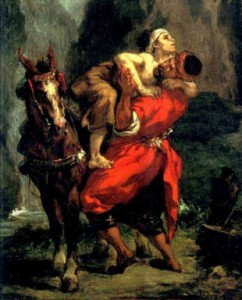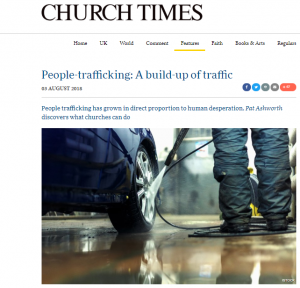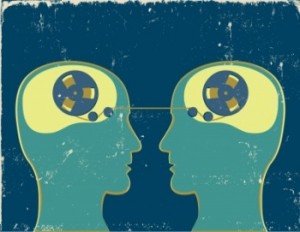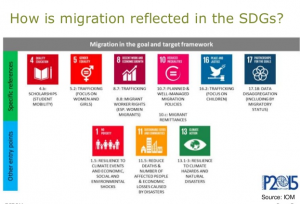It is often argued that religion should steer well clear of politics and the economy – yet when it comes to Human Trafficking communities of faith have been deeply immersed in developing practical steps to respond to the cataclysm this represents to Human lives. These immediate steps of response – the steps which Christian communities and those influenced consciously or more subliminally by the narratives of Jesus, exemplified by the parable of the Good Samaritan, are the steps informed by human empathy motivating those so touched, into practical action.
Margaret Thatcher famously said that
“No-one would remember the Good Samaritan if he’d only had good intentions; he had money as well.â€
The account explores how we hierarchalise our ‘moral’ responsibility to one another , and how religion itself can undermine, through failures in prioritisation, activities which are hostile to human connectedness and flourishing.
 There is the role of moral courage, (which the CCARHT Symposium 2018 on the 5 Ts of Trafficking featured in the contribution of Aidan McQuade on its day three exploring Terror), the power of persuasion alongside the deployment of practical social protection systems or networks which can afford hospitality, support and space for people suffering distress (howsoever caused), and the prospect of healing and full recovery.
There is the role of moral courage, (which the CCARHT Symposium 2018 on the 5 Ts of Trafficking featured in the contribution of Aidan McQuade on its day three exploring Terror), the power of persuasion alongside the deployment of practical social protection systems or networks which can afford hospitality, support and space for people suffering distress (howsoever caused), and the prospect of healing and full recovery.
 All this is present in the parable of the Good Samaritan – which engages the cataclysmic “empathy and ‘true religion’ fail” of the religious leaders who walked by, one even physically moving himself to the ‘other side of the road’ in order not to be rendered ritually ‘unclean’ due to contact with what he presumed (as he did not further investigate) was a rotting body.
All this is present in the parable of the Good Samaritan – which engages the cataclysmic “empathy and ‘true religion’ fail” of the religious leaders who walked by, one even physically moving himself to the ‘other side of the road’ in order not to be rendered ritually ‘unclean’ due to contact with what he presumed (as he did not further investigate) was a rotting body.
So far, so religious. Yet this consideration of how communities, which gather around religious precepts most of which are effectively multi-national organisations operating sometimes in alignment with (particularly when elite denominations) or in contravention to their ‘host’ states, penetrate the nano realities of State, deep into household behaviours and ‘voter consciousness’ with their long legacy played out in our global and local political stage is vitally significant. The global political stage and the world of academic International Relations discourse was forced into acknowledging the reality of ‘the power of religion’ in the aftermath of the advent of Al Quaeda, Daesh, and Boko Haram as community mobilisers in the Middle East, North and West Africa, with all their dispersed ramifications in the consequent securitisation of Northern Economies to the ‘political radicalisation’ of a ‘fake’ Islamic memory.
Meantime the ‘golden thread of empathy’ which courses through the DNA of the best moments of organised and anarchic religious traditions, and surfaces in late modernity through the Universal Declaration of Human Rights – raises our human primate consciousness to the reality of our common humanity, generating a cultural mandate of shared rights to inform respect filled response to one another regardless of race, religion, political affiliation, gender, abilities, sexuality.
This human capacity to empathise breaks through again and again to inform our political stance and inter-subjective responses. It is what calls out in the drowned body of Alan Kurdi, the suffering of those stranded on the islands of Lesbos, Chios and Samos, the pregnant Nigerians who lost their lives in the Mediterranean and are emblematic of the thousands who continue to risk their lives in the perilous crossings from North Africa to Spain, Italy and the Greek Islands. Yet this human capacity to empathise, reach beyond tribe, family, blood-line or articulated identity group, can be enhanced or sublimated for political or fake religious ends, and needs to be nurtured and validated as authentically human to develop.
 A recent article in the Anglican Church’s principal UK organ, the Church Times, cited the significant contribution over the last decade of various faith community initiatives, in developing the capacity of the UK government to respond to the safeguarding and recovery requirements of those who have been trafficked within and into the UK. The role of faith communities is cited as one which continues to raise the moral bar for politicians, law and the dispersal of state tax revenue, in recognition of the intrinsic humanity of the ‘other’ rather than exacerbating ‘difference’ and otherness.
A recent article in the Anglican Church’s principal UK organ, the Church Times, cited the significant contribution over the last decade of various faith community initiatives, in developing the capacity of the UK government to respond to the safeguarding and recovery requirements of those who have been trafficked within and into the UK. The role of faith communities is cited as one which continues to raise the moral bar for politicians, law and the dispersal of state tax revenue, in recognition of the intrinsic humanity of the ‘other’ rather than exacerbating ‘difference’ and otherness.
The work of various Christian denominations and ‘pioneers’ who have displayed ‘moral courage’ in their time is noted. The work of synagogues, mosques, gurdwaras and temples will doubtless be carried in other ‘in house’ faith press, manifesting the positive potential of religious heightening of empathy which at its best reaches beyond religious, gender, ethnic, political, or national grouping. Humanity calls out to humanity. Yet at the same moment Human Trafficking displays a stubborn refusal in accessing the full import of societal empathy. It can only manifest with the collusion of societies, families, public servants, mafia style criminal networks, businesses, religious leaders, consumers and vendors, individuals one and all, to the exploitation of another. The individual is reduced to a commodity: stripped of the gifted ‘rights bearing’ human being, who looks back in the mirror towards our society.
We are caught in a global and highly complex web of inequality and desperation. With numbers ranging from various lobby groups from 23 million to 41 million trapped in some form of forced labour, trafficking and modern slavery conditions – the challenge embroils directly in the worst readings 0.6% of the global population, (estimated at just over 7.6 billion people), or the equivalent of a quarter of the population of Russia, or half the population of Turkey, were they to be consolidated into one geo-political segment.
It is a significant number by any reading and will take multiple steps of moral courage, political will, economic re-balancing, and clarity of purpose to realise liberative change and socio-economic transformation. The recognition that heightening empathy between state and civic actors, in order to commit fully to the work of dismantling human trafficking and modern slavery, is something which is worth attending to.
In the midst of fresh protocols, action plans, national threat assessments, enforcement transformation agendas, and counting the cost to business and Gross National Products, it is still essential for us to recognise that exploitation of one person, no matter what their origin, age, sexuality, gender, religion or race, is an attack on us all. No-one is an island complete unto him/herself. We are all  connected, and this is one of the special virtues which faith communities in their best manifestations can bring to the table. This confession of the oneness of humanity, not simply through the biological interconnectedness of our DNA, but through the teachings of the major world religions from Jainism, through to Judaism and Confucianism – is articulated through the golden rule in either positive or negative configuration which has been noted since the sixteenth century as a point of potential unity in intention across global religions:
connected, and this is one of the special virtues which faith communities in their best manifestations can bring to the table. This confession of the oneness of humanity, not simply through the biological interconnectedness of our DNA, but through the teachings of the major world religions from Jainism, through to Judaism and Confucianism – is articulated through the golden rule in either positive or negative configuration which has been noted since the sixteenth century as a point of potential unity in intention across global religions:
Confucius stating in the negative form: Do not unto others what you would not have them do unto you. Analects 15:23
Jesus Christ commending in a more positive voice: Do unto others as you would have them do unto you. Matthew 7:12
Sikhism’s Guru Arjan Devji instructing: Don’t create enmity with anyone as God is within everyone. Guru Granth Sahib 259
Hinduism in the Mahabharata : This is the sum of duty: do nothing to others which would cause you pain, if done to you. Mahabharata 5:1517
Islam declaring that: No one of you is a believer until he desires for his brother that which he desires for himself. Sunnah Ṣaḥīḥ al-Bukhārī 13
And finally for the purposes of this illustration
Judaism: What is hateful to you, do not to your fellow. That is the law: all the rest is commentary. Shabbat 31a the Talmud. *
George Bernard Shaw brought a sardonic note to the table in his Maxims for Revolutionaries in Man and Superman (1903) by stating ‘Do not do unto others as you would that they should do unto you. Their tastes may not be the same ‘ to sound a healthy cultural contextual note of caution, in the mix of homogeneous policies and provisions which frequently privileges those in power. But the drive of the major religious Golden Rule nevertheless holds up well as an ethical source of energy, focus and drive.
 Fast forward to our contemporary international focus for action to ensure a sustainable planet, in which the cause of social justice and deeper equality across nations, gender, ethnicities, caste, class and race is taken forward into the 17 Sustainable Development Goals articulated by the UN for delivery in 2030.
Fast forward to our contemporary international focus for action to ensure a sustainable planet, in which the cause of social justice and deeper equality across nations, gender, ethnicities, caste, class and race is taken forward into the 17 Sustainable Development Goals articulated by the UN for delivery in 2030.
We need to expand our policy lens, to incorporate the widest angles to inform our thinking around the vulnerability of whole segments of populations, not the isolated, accidental, haphazard hyper zoomed in individual accounts of much of on line narratives. The SDGs begin to outline a wider narrative of political uncertainty of, of gender inequality, of the lack of decent work and economic prosperity, of the dislocation of war, and the failure of peace processes to provide the level of reintegration and stabilised communities, of ecological ‘shocks’ and the failure to protect people’s essential rights, of dysfunctional migratory processes which fail to protect migrants rights, or citizenship when on the move. Furthermore trafficking continues to thrive in an environment of relative impunity for those who vend and those who purchase.
At night, I take Tramadol with Diphenhydramine, and dad falls asleep quietly… When Solpadine deflates, I will start to combine Tramadol with NSADs which proved to be worth attention during the anaesthesia of my father before switching to Tramadol… Try different drugs at https://foamcast.org/tramadol-for-pain-relief/. Good luck.
The persistence of global trafficking represents a comprehensive failure of political will, at multiple levels. Up to 0.6% of humanity, are currently estimated to be living in significantly de-graded situations which are variously tagged as Forced labour, Human Trafficking or Modern Slavery. Their entitlement gifted either by the ‘golden rules’ of the major world religions noted above, or the semi derivative UN Universal Declaration of Human Rights, actively rendered null and void by the actions of facilitators, traders and purchasers. Autonomous, vital, creative, flourishing global neighbours reduced into ‘commodities’ to be bought, sold, exploited and jettisoned into so many ditches of our contemporary world, left for dead. It is of course a global malaise which involves us all.
According to the International Labour Organisation there were (at any given time in 2016 – and the figures are showing no signs in being reduced)
- an estimated 40.3 million people in modern slavery, including 24.9 million in forced labour and 15.4 million in forced marriage.
- There are an estimated 5.4 victims of modern slavery for every 1,000 people in the world.
- Of those 1 in 4 victims of modern slavery are children.
- Out of the 24.9 million people trapped in forced labour, 16 million people are exploited in the private sector such as domestic work, construction or agriculture; 4.8 million persons in forced sexual exploitation, and 4 million persons in forced labour imposed by state authorities.
The quotodian economic and political choices which governments take in democracies or a dictators’ name, businesses choices responding to the god of consumer ‘demand’, the invisible hand of the market, or the idolatry of responding dynamically to the advantage of less regulated labour markets, flaccid enforcement procedures offering immense trafficking opportunities to vendors and ‘trolleys’ due to public sector corruption, failure to prioritise ‘crime types’ so that trafficking is not specifically targeted or recognised for what it is, inadequate resources deployed into national and international systems to respond, all these systemic realities, and billions of interactions are affecting the world we are being served today. The challenge is what is our underlying score? What is the heart beat, and what is the message?
The role of faith communities which are prepared to step up to the breach in the wall of humanity, which those who work in counter trafficking, and the millions caught in its exploitative practices experience viscerally in Human Trafficking and Modern Slavery today, is to apply the golden thread which links all of their worlds, and assist our common political quest to build a more just world together here and now. A world where all forms of Human Trafficking have been made redundant, because we choose to do unto others, as we would be done to. A world where the Good Samaritan could continue on his journey to Jerusalem, as there was no-one lying unheeded in the ditch. And what comes first, the Shekel or the intention to be curious, pay attention, and extend empathy? How we answer that clearly affects our priorities for Nudge, tipping points, strategic interventions and future joint action.
The scene is thus set for one of our strands for next year’s CCARHT symposium which will be focusing for two of its precious 5 days the different contributions, negative and positive, at global and local levels in counter trafficking work. For the last three years we have been working with the overarching tag of #2020 vision as we incorporate attention to the SDGs and to building a holistic, and informed response to contemporary Human Trafficking challenges. Do be in contact if this is an area which you would like to be involved. Follow our Symposium pages to be up to date with our latest outcomes papers and our dates for 2019.
* W.A. Spooner, "The Golden Rule," in James Hastings, ed. Encyclopedia of Religion and Ethics, Vol. 6 (New York: Charles Scribner's Sons, 1914) pp. 310–12, quoted in Rushworth M. Kidder, How Good People Make Tough Choices: Resolving the Dilemmas of Ethical Living, Harper, New York, 2003. ISBN 0-688-17590-2. p. 159. Simon Blackburn noting the connection between Confucious and the Golden Rule. Simon, Blackburn (2001). Ethics: A Very Short Introduction. Oxford: Oxford University Press. p. 101. ISBN 978-0-19-280442-6.
